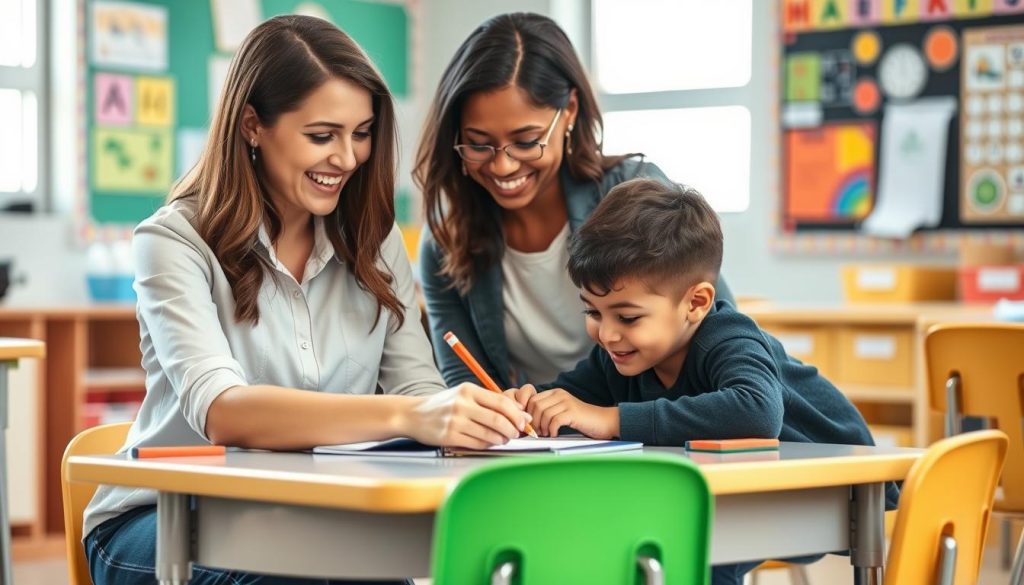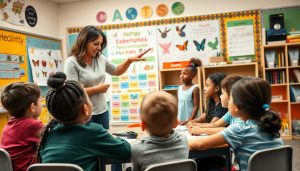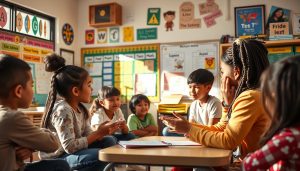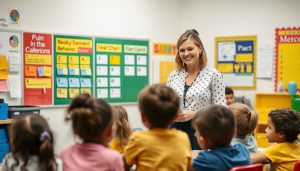As educators, we know intuitively that the quality of our interactions with students influences classroom dynamics. But research now confirms what great teachers have always understood – strong teacher-student relationships are not just nice to have; they’re essential for effective education. Let’s explore why these connections are so vital and how developing specific teacher skills can transform your classroom experience.
Building meaningful connections is one of the most important teacher skills
Why Relationships Matter for Student Academic Success
The evidence is clear: when students feel connected to their teachers, academic performance improves significantly. Research from Edutopia shows that students who report positive relationships with their teachers are more engaged in learning, demonstrate greater persistence when facing challenges, and achieve higher test scores across subjects.
These academic benefits stem from several key factors. First, students who feel valued by their teachers are more willing to take intellectual risks – asking questions, attempting difficult problems, and persisting through failures. Second, positive relationships reduce anxiety and stress that can interfere with cognitive processing. Finally, when relationships matter to teachers, students develop a sense of accountability that motivates them to meet expectations.
Developing teacher skills in relationship building isn’t just about being “nice” – it’s about creating the conditions where learning can flourish. Teachers who master these interpersonal teacher skills create classrooms where:
- Students participate more actively in discussions
- Attendance rates improve significantly
- Assignment completion increases
- Academic achievement rises across demographics
- Learning retention improves over time
The impact is particularly pronounced for students who have historically struggled in school. For these learners, a teacher who demonstrates that relationships matter can be the difference between disengagement and academic breakthrough.
How Teacher Skills in Relationship Building Impact Emotional Development
Beyond academics, strong teacher-student relationships profoundly influence emotional and social development. When teachers prioritize relationships, they create safe spaces where students can develop crucial emotional intelligence skills. This emotional foundation supports students not just in school, but throughout their lives.
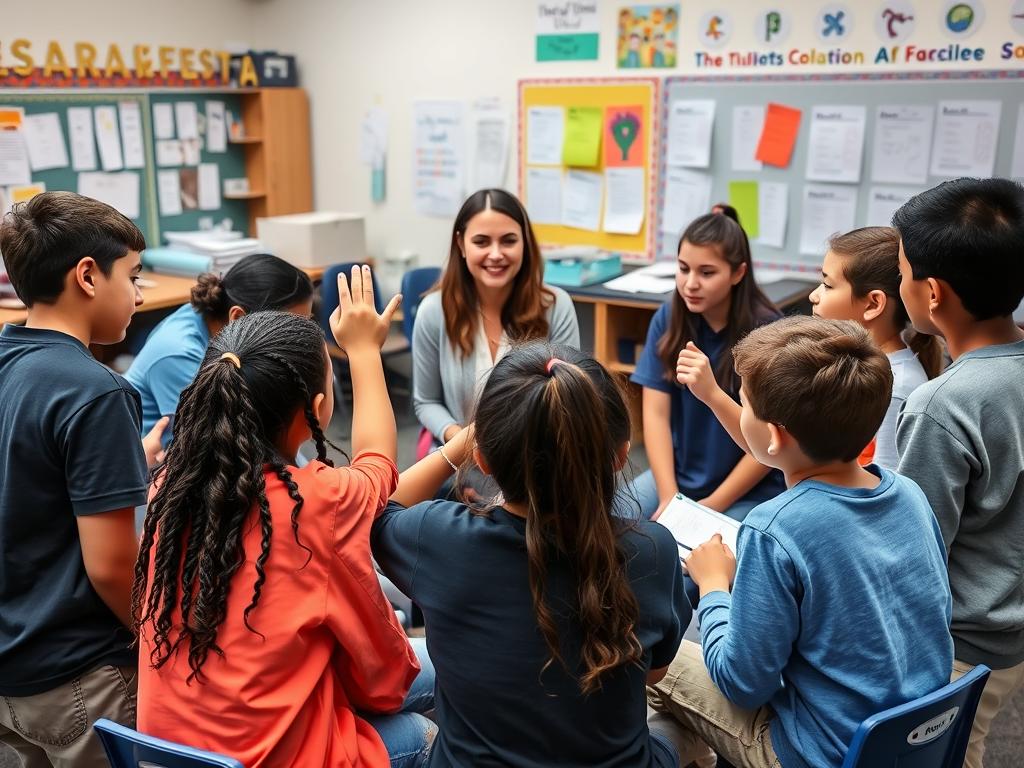
When teachers demonstrate that relationships matter through consistent, supportive interactions, students experience:
Improved Self-Regulation
Students learn to manage emotions by observing how teachers handle challenging situations. Teacher skills in modeling appropriate emotional responses provide students with templates for their own self-regulation.
Greater Resilience
Supportive teacher relationships help students develop coping mechanisms for academic and personal challenges. This resilience becomes a transferable skill for navigating life’s inevitable difficulties.
Developing teacher skills in emotional intelligence isn’t optional in today’s educational landscape – it’s essential. Professional development in relationship-building equips educators with strategies to support students’ emotional needs while maintaining appropriate boundaries.
Enhance Your Relationship-Building Skills
Discover proven strategies for connecting with even your most challenging students. Our specialized course provides practical techniques you can implement immediately.
Relationships Matter: Building Trust in Diverse Classrooms
Today’s classrooms reflect our increasingly diverse society, making relationship-building both more challenging and more essential. Students bring varied cultural backgrounds, learning styles, and life experiences to school each day. Effective teachers recognize that relationships matter especially in these diverse environments.
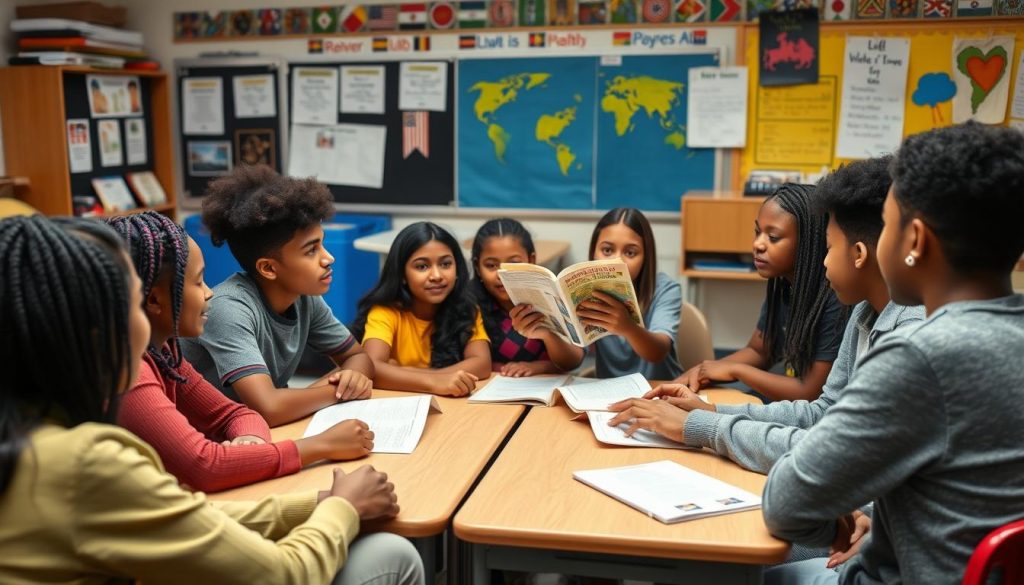
Building trust across differences requires specific teacher skills that go beyond general relationship-building techniques. Teachers must develop cultural competence – the ability to understand, appreciate, and interact effectively with students from diverse backgrounds.
Key Teacher Skills for Culturally Responsive Relationship Building:
- Self-awareness about personal cultural biases and assumptions
- Knowledge of students’ cultural backgrounds and how they influence learning
- Ability to adapt communication styles to connect with diverse learners
- Skill in creating inclusive classroom environments where all students feel valued
- Capacity to incorporate culturally diverse perspectives into curriculum
When teachers demonstrate these skills, they signal to students that relationships matter regardless of background differences. This foundation of trust enables authentic learning communities where students feel safe to express themselves and engage with challenging material.
As research from ASCD confirms, relationship-building in diverse classrooms isn’t just about making students feel good – it’s about creating the conditions for equitable educational outcomes. Teachers who excel at these relationship skills see achievement gaps narrow and classroom community strengthen.
The Science Behind Why Relationships Matter
The importance of teacher-student relationships isn’t just anecdotal – it’s grounded in neuroscience. Understanding the brain science behind these connections can help teachers develop more effective relationship-building teacher skills.
When students experience positive relationships with teachers, their brains respond in ways that enhance learning:
Stress Reduction
Supportive relationships lower cortisol levels, reducing the stress that inhibits learning. Teacher skills in creating calm, predictable environments directly impact brain chemistry.
Dopamine Release
Positive interactions trigger dopamine release, enhancing motivation and memory formation. This neurochemical response explains why students learn better from teachers they connect with.
Neural Connectivity
Secure relationships promote development of neural pathways in the prefrontal cortex, enhancing executive function skills crucial for academic success.
These neurological processes explain why relationships matter so fundamentally in education. When teachers develop skills in creating positive emotional connections, they’re not just making school more pleasant – they’re literally changing students’ brains in ways that optimize learning.
The science also explains why negative teacher-student relationships can be so damaging. When students experience chronic stress in relationships with authority figures, their brains enter survival mode, making higher-order thinking nearly impossible. This underscores why developing positive relationship-building teacher skills is essential for effective teaching.
Practical Ways to Show Students That Relationships Matter
Understanding the importance of teacher-student relationships is one thing; building them effectively is another. Let’s explore practical teacher skills you can implement immediately to strengthen connections with your students.
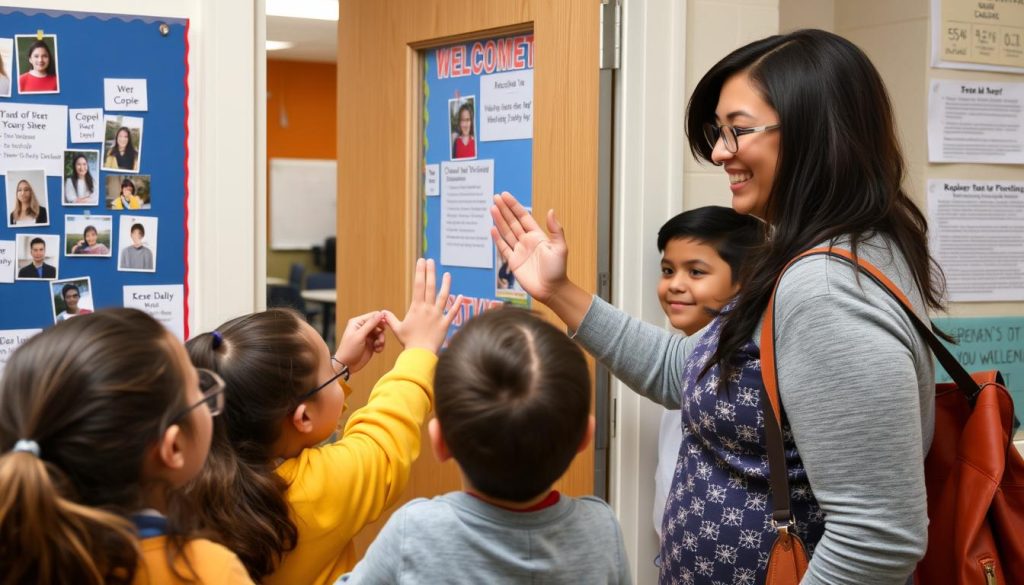
Daily Practices That Build Connection:
- Greet each student by name at the door
- Incorporate regular check-ins about students’ lives outside school
- Share appropriate personal stories that humanize you to students
- Use specific, authentic praise that recognizes effort and growth
- Implement restorative practices rather than punitive discipline
- Attend student extracurricular activities when possible
- Create classroom traditions that build community
These practices don’t require extensive additional time – they can be integrated into existing routines. The key is consistency and authenticity. Students quickly discern when teachers genuinely believe relationships matter versus when they’re just going through the motions.
Developing these teacher skills takes practice and intentionality. Professional development resources can provide structured support for teachers looking to enhance their relationship-building capabilities.
Ready to Transform Your Classroom Relationships?
Our comprehensive guide provides step-by-step strategies for building meaningful connections with every student in your classroom.
When Relationships Matter Most: Connecting with Challenging Students
Perhaps the greatest test of a teacher’s relationship-building skills comes with students who present behavioral or engagement challenges. These are often the students who need positive relationships most desperately – and who benefit most dramatically when teachers demonstrate that relationships matter.
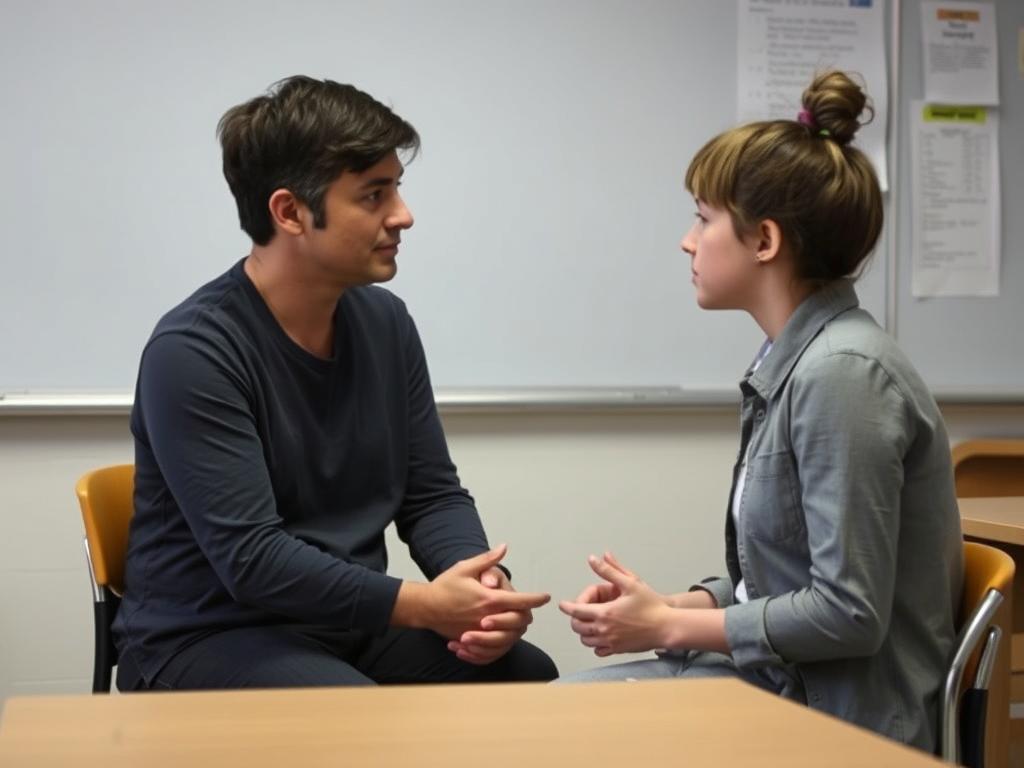
Connecting with challenging students requires specialized teacher skills:
Separate Behavior from Identity
Skilled teachers address problematic behaviors while affirming the student’s inherent value. This distinction shows students that relationships matter regardless of their actions.
Seek to Understand
Behavior is communication. Teachers who develop skills in identifying underlying needs create breakthrough moments with challenging students.
Maintain High Expectations
Relationship-focused teachers balance emotional support with clear standards, showing students they believe in their capacity to succeed.
Practice Unconditional Positive Regard
This foundational teacher skill – consistently demonstrating that you value the student regardless of their behavior – builds trust with even the most resistant learners.
The impact of these approaches can be transformative. As one teacher shared after completing a relationship-building course: “My most challenging student became my greatest success story once I focused on building connection before correction.”
These teacher skills don’t come naturally to everyone, but they can be developed through intentional practice and professional support. Investing in these capabilities pays dividends not just for challenging students, but for overall classroom climate.
Conclusion: Relationships Matter Now More Than Ever
In an era of increasing academic pressure and technological distraction, the human connection between teachers and students remains irreplaceable. When teachers demonstrate that relationships matter through their daily interactions, they create learning environments where students thrive academically, emotionally, and socially.
Developing teacher skills in relationship-building isn’t a “soft” alternative to academic rigor – it’s the foundation that makes rigorous learning possible. The research is clear: students learn better from teachers they connect with, trust, and believe care about them as individuals.
As you reflect on your own classroom practice, consider how you might enhance your relationship-building teacher skills. Small, consistent actions often make the biggest difference. Remember that relationships matter not just for student outcomes, but for your own professional fulfillment as an educator.
Take Your Teacher-Student Relationships to the Next Level
Join thousands of educators who have transformed their classrooms through our comprehensive relationship-building program. Earn professional development credits while mastering essential teacher skills.
By prioritizing relationships in your classroom, you’re not just teaching content – you’re changing lives. In the words of education researcher James Comer, “No significant learning occurs without a significant relationship.” When teachers truly believe that relationships matter, the possibilities for student growth become limitless.

